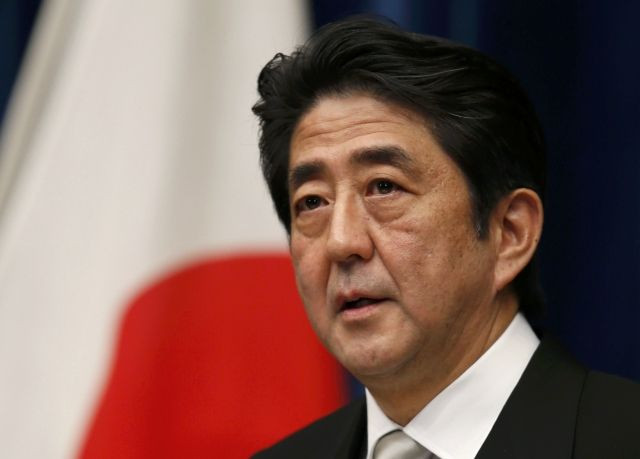Japan Summons Chinese Ambassador Over Island Dispute; Shinzo Abe Mulls Increased Defense Spending

Japan’s newly elected government headed by Prime Minister Shinzo Abe Tuesday summoned the Chinese ambassador, for the time since its inauguration, to protest against the presence of Chinese vessels in waters near a disputed set of islands in the East China Sea.
Japan's Deputy Minister for Foreign Affairs Akitaka Saiki met Chinese Ambassador Cheng Yonghua in Tokyo to lodge a protest after four Chinese government ships were spotted in the area Monday.
Saiki "strongly protested over the Chinese public vessels' entry and staying for a long time inside Japanese territorial waters, as well as strongly demanded that such incidents do not happen again," Japan’s foreign ministry statement said.
The move came in the wake of Japan’s new nationalist government reviewing its national military strategy, which is believed to be aimed at increasing the nation’s military spending for the first time in a decade.
Abe had promised during the election campaign to strengthen the military to defend Japan’s interests in the East China Sea with regard to the disputed islands known as Senkaku in Japan and Diaoyu in China.
The government, led by the center-right Liberal Democratic Party (LDP), is planning to increase the number of Self-Defense Forces troops and upgrading their equipment, according to a report in the Japan Times. Abe is also planning on reversing the previous government’s defense spending cuts, starting with a 120 billion yen, or $1.4 billion increase in the military budget in the 2013 fiscal year, which begins in April.
Meanwhile, Japan's new ambassador to China, Masato Kitera, held talks with Chinese Foreign Minister Yang Jiechi in Beijing Saturday. Both sides declined to reveal the details of the talks, though the East China Sea dispute is believed to have been a part of the agenda.
The Japan Times’ editorial Tuesday called on Abe administration to “make strenuous diplomatic efforts to find opportunities to talk quietly with China in an effort to put bilateral relations back on a normal path,” while stressing on the need to enhance Japan’s “ability to protect its territorial waters and airspace.”
“Japan should strive to counter voices in the international community that are attempting to undermine the legitimacy of Japan's possession of the Senkaku Islands,” the commentary said adding that Tokyo should begin greater engagement with Taiwan for “joint development of the seas around the Senkaku Islands and for shelving the sovereignty issue.”
Tensions between China and Japan escalated Sept.11, when the Japanese government announced the signing of a contract worth 2.05 billion yen ($26 million) to buy three of the five disputed islands from their private owner. Since then Chinese patrol ships have frequented the waters around the islands.
The islands, which lie some 200km (124 miles) off Japan's Okinawa island and beyond China's 200 nautical mile (370km) exclusive economic zone, are surrounded by an area rich in fisheries and are believed to contain significant hydrocarbon resources.
© Copyright IBTimes 2024. All rights reserved.






















